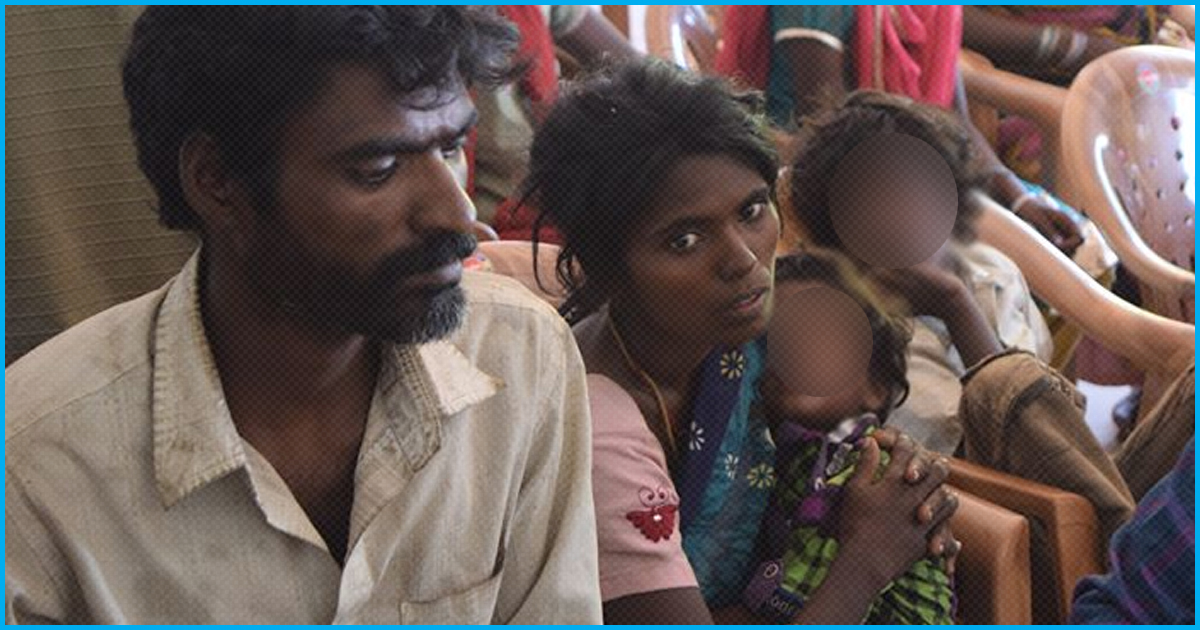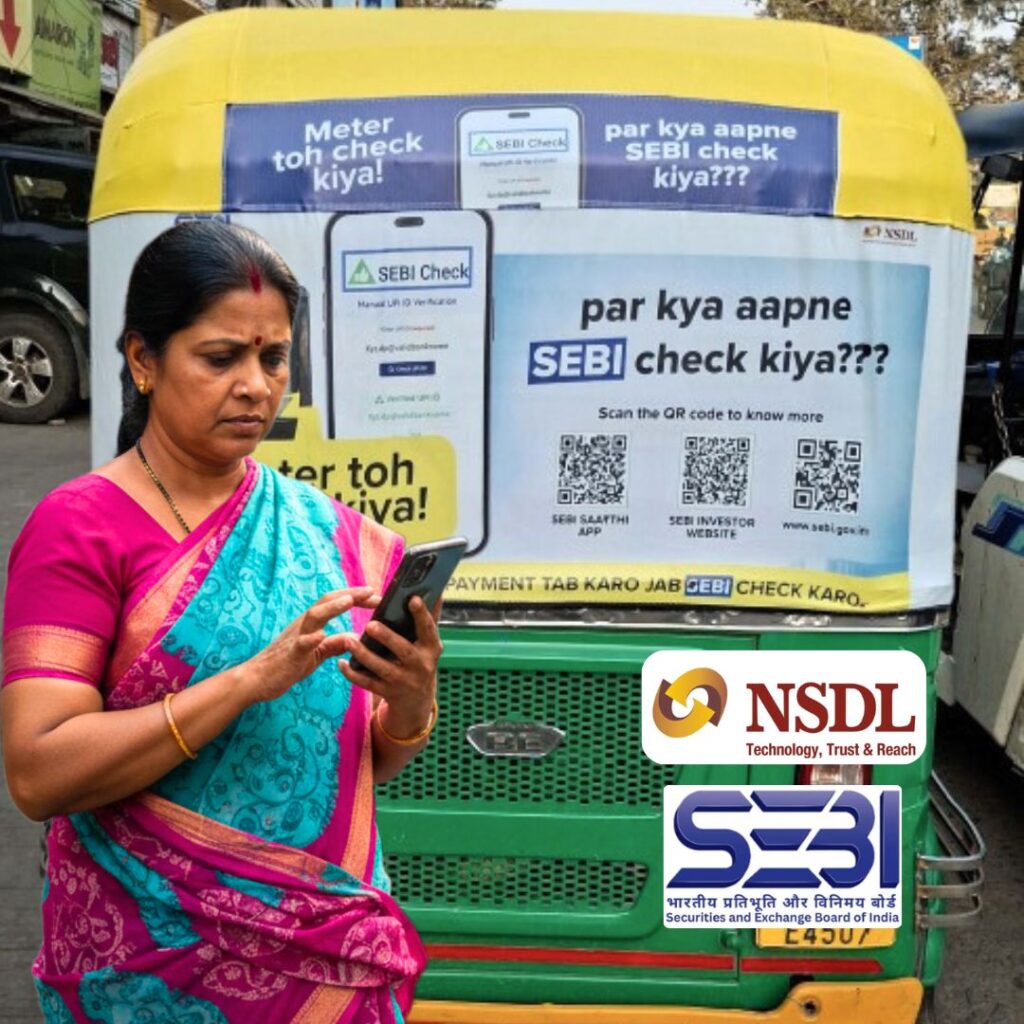Thick smoke filled up the air, waking up the two children—Sunderavalli and Anbu— and their grandparents. The four immediately jumped to their feet and ran outside their hut. Within minutes, their hut and belongings had burnt to ashes.
In deep agony and utter shock, the grandmother ran to her son and daughter-in-law’s workplace to tell them what had happened.
“It was traumatising to hear about it,” recalls Muthu. “When my mother-in-law came to us, she was terrified. Seeing her tears and helplessness, I too started crying… Everything was gone. It was a hopeless situation.”
Later, Muthu heard from other villagers that her employer, who was the owner of the wood-cutting and agricultural unit that she worked at, had caused the ‘accident’. His words, when he heard about the mishap suddenly made sense.
“You always wanted to leave only because you had that house,” he had said. “That’s why someone burnt it up. There’s no point in you going there anymore. There’s nothing there.”
With a heavy feeling in her heart, Muthu says it took her a few moments to process everything. She remembered all the incidents that had led to that moment.
Dark past
Some years ago, the owner had approached Muthu and Sundaram with Rs. 1000 and an invitation to live and work at a wood-cutting and agricultural unit. The wages were good and Muthu and Sundaram believed this was the breakthrough they had been waiting for. Coming from a village where they had no home and minimal job opportunities, they decided to take up the offer. Scared yet hopeful, they left their children in the care of Sundaram’s parents, bid goodbye and left.
Little did they know that the thousand rupees they had accepted would cost them years in bondage and strip them of their basic human rights and freedom.
Freedom lost
From the moment of accepting the offer, Muthu and Sundaram’s lifestyle changed entirely. They were forced to obey everything the owner said – when and how long to work when to eat, where to go, where to live and when to sleep.
Physical exertion
The couple slogged for long hours every day, seven days a week, chopping trees, clearing thorns, loading wood, cultivating crops and so on. The physical exertion left their bodies sore and blistered their palms. However, their pain and health were not of the least interest to their owner. They continued to work every day to avoid vulgar abuses and sound lashes.
Wage worries
Muthu and Sundaram endured all this only to earn a measly Rs. 200-300 per week, which works out to Rs. 14-21 per person per day. With this, the couple couldn’t dream of ever repaying their loan, and with interest too! It was insufficient to even meet their daily needs. “If we asked him for more money, he would yell. He claimed that he was deducting money to adjust our debts,” says Muthu.
Homeless in hazardous surroundings
Muthu and Sundaram lived by the side of a road behind the airport in Chennai. They mounted a tent that was about four-foot high, using sticks and a tarpaulin sheet – the only shelter over their heads. They lived in constant fear of snakes, scorpions, rodents and insects.

Vast empty space surrounded them. The place had no basic amenities—no lights, no water, no proper food, no house.
No walls, but trapped
To add to the misery, the couple was bound to the worksite. It wasn’t that there ever were physical walls that stood in the way of their escape; the fear that the owner had instilled in their minds, ensured they continued to work for him and only him.
They were never allowed to return to their village as a family for anything – be it to celebrate a festival, visit a doctor or even pay their last respects to a loved one who had passed on. If the person who left did not return on time, the owner sent men to bring him back. This was often followed by severe punishments to thwart any further attempts at staying away.
Children become victims
Muthu and Sundaram longed for freedom, but their situation only grew worse. One day, the owner walked up to them with their children, Sunderavalli and Anbu and claimed, “The people you had left your children with are not taking care of them properly. So, I paid them Rs. 20,000 and brought them here.” Muthu and Sundaram were shocked. “I am sure he lied to us. He just wanted us to be there and work,” she says.
“Watching my children work was very painful for us. We had big dreams of giving them an education. Even after they started working, we still had that dream—today get out of this place someday and provide education for our children,” Muthu vents. “But it seemed impossible.”
Dawn of hope

Muthu’s face lights up as she recalls their rescue day, “Just as we were cutting trees, we saw some people wearing pants and shirts, walking towards us.”
“They gave us a Release Certificate and said we don’t have to work there anymore,” Muthu smiles. (Release Certificates cancel any outstanding debt, freeing them of any bond they may have agreed to verbally or signed unknowingly. For most victims of bonded labour, this is their first identity card.) “The RDO madam said we can go back home and counselled us never to take advance money ever again.”
Dr D. Faridha Banu, Revenue Divisional Officer (RDO) of Kanchipuram released Muthu, Sundaram, Sunderavalli, Anbu and the youngest baby, Subramani, who was born when they were bonded, on 21st September 2015. For the first time in four years, the family was free!
Freedom journey
Coping with life after bondage is not easy. Being suppressed for years affects the person physically, socially and psychologically. Victims need trauma care and regular interventions that encourage and motivate them in order to reintegrate into society again. With regular meetings and counselling sessions, victims become survivors who thrive in freedom. This was true in the case of Muthu and Sundaram as well. Three years later, Muthu and Sundaram are living comfortably as free citizens of the country. They have identity documents, ration cards, job cards and a newly built home.

Empowered in freedom
The extent of growth and development that survivors experience in freedom is evident – Muthu and Sundaram are now members of the Released Bonded Labourers’ Association (RBLA), which consists of bonded labour survivors who proactively work against bonded labour in their respective districts. They help raise awareness among people, work with the government to lead rescues and help other vulnerable people access government welfare measures.
Muthu especially remembers how she helped an elderly, frail man from being trapped into the bonded labour system. “I warned him against taking an advance and told him how bonded labour works,” she says.
“Coming out of there was like coming out of jail,” says Sundaram. “We did not want him to suffer too.”
“Now, life…our children…everything is joyful,” beams Muthu. “We can work when we want. We stay at home, in our own house. We don’t have to fold our hands, submit and work for anyone anymore. We are free!”
About the author: Jerusha Venkatarangam works with International Justice Mission, an NGO which work against bonded labour and sex trafficking of minors.
This article is a part of the series by The Logical Indian in collaboration with International Justice Mission to create awareness on bonded labour and human trafficking.
Also Read: Karnataka: Kept As Bonded Labourers, Woman Gives Birth To Two Kids Without Any Help











